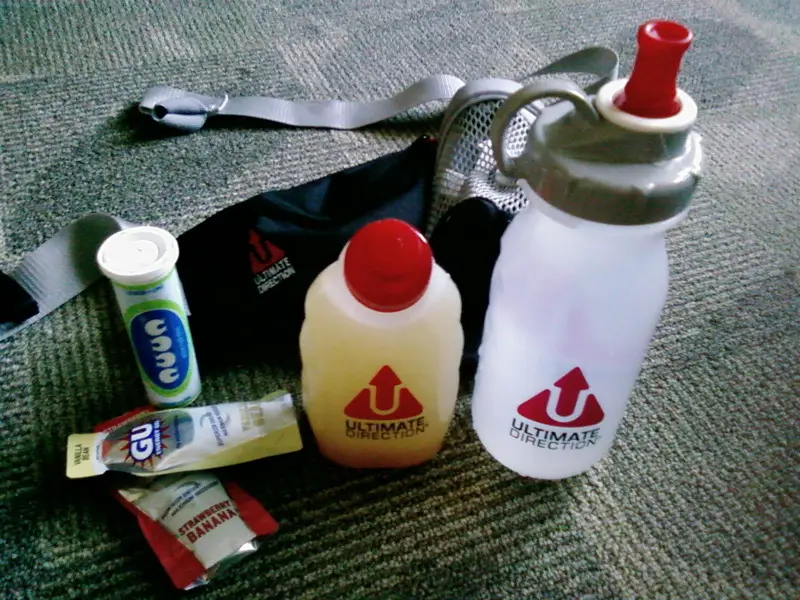When we talk about fuel, we're referring the glycogen, which is made up primarily of glucose, that fuel the metabolic activity in your muscles and organs. Your body runs on carbohydrates. It stores fuel for immediate use as glycogen , which is used to make other chemicals that allow your muscles to move and brain and organs to function. We function much like thousands of batteries powering of little motors and devices. We'll ignore protein for now since it's not a primary fuel source. Just be sure you getting a good balance of protein in your diet. Protein in generally part of an emergency back-up plan for supplemental fuel.
Fats:
The primary fuel source. 1 lb of fat is approx. 3500 calories. Eve a very lean human is has over 10lbs of fat ready to convert to glycogen. That's 35,000 calories!!! In comparison, if you could store 3500 calories of glycogen, it would be approx. 4-6lbs since glycogen is stored with 3-4x it's weight in water. However, you can only burn fat alone up to about 50% of threshold HR or power. Above that it decreases until high intensity exercise when you consume 100% glycogen. Fats also keep you more satisfied longer in terms of hunger and are critical to organ and tissue health including the brain. Low fat diets have recently been proven to not improve overall health or be more effective at losing weight, quite the opposite. Especially since fat is often replaced with sugar for the same caloric intake. Eat you fats, eat plenty of them, a wide range of them. They are good for you. This includes saturated fats. Best to start away from hydrogenated or modified oils. These are being phased out of processed food.
Carbohydrates:
What powers your muscles. An average sized, well trained athlete can store around 2000 calories in the liver and muscles. That's 2 hours at a fairly high intensity, longer, since you will still be burning fat as well. That being said, at intensities near, at and above threshold, Consuming at least a small amount of sugar, will have a physiological and psychological effect that can increase performance. However, you can typically only absorb 300-400 calories per hour, or roughly 1/2 your calories demand. The good news, is that for more humans, the rate that your fatigue you muscles at different intensities, almost perfectly matches the maximum metabolic output you can sustain over longer duration. Funny how that works.
Hydration and electrolytes:
Hydration is necessary to replace fluids lost through sweat and other bodily fluids, when breathing, and when utilizing glucose. You typically need to drink 20oz during more activity, 30oz or more if sweat rate is high. You can function at a high level of performance over a wide range of hydration levels. In moderate to mild weather, you can go 90 minutes without consuming additional water. I won;t discuss electrolytes and it's almost like discussing religion. In my opinion at least, you get plenty in most foot, nutrition products that it's not something you need to think much about. Consume a little more if you want, but you can;t really store a whole lot, don't need very much and you body excretes any excess.
If I'm well trained, in moderate conditions how much do I need:
30 minutes - Nothing
60 minutes - Water optional
90 Minutes - Water Optional, 100-200cal of nutrition if very higher intensity.
120 minutes - 20oz of water and 100-400 calories if moderate to higher intensity.
2 hours + - 20-24oz per hour and fuel at 250-400 calories per hour for moderate intensity.
Keep in mind that water and glycogen still needs to be replaced after you finish your workout.
These are just general guidelines, but I find that during short workout a lot of athletes are consuming much more than necessary. I remember completing 2-1/2 hour swim workout in high school consuming just 1-2 bottles of water. It's amazing what you can adapt to even at moderate to high average intensities.
In hot conditions when your sweating a lot, consume more water. On the bike I always drink some just to be in the habit of drinking regularly. In a triathlon, one of the most important elements of the bike leg in long course, is hydration and refueling for the run.
Hope this little piece of info helps. Good luck in your training.



No comments:
Post a Comment